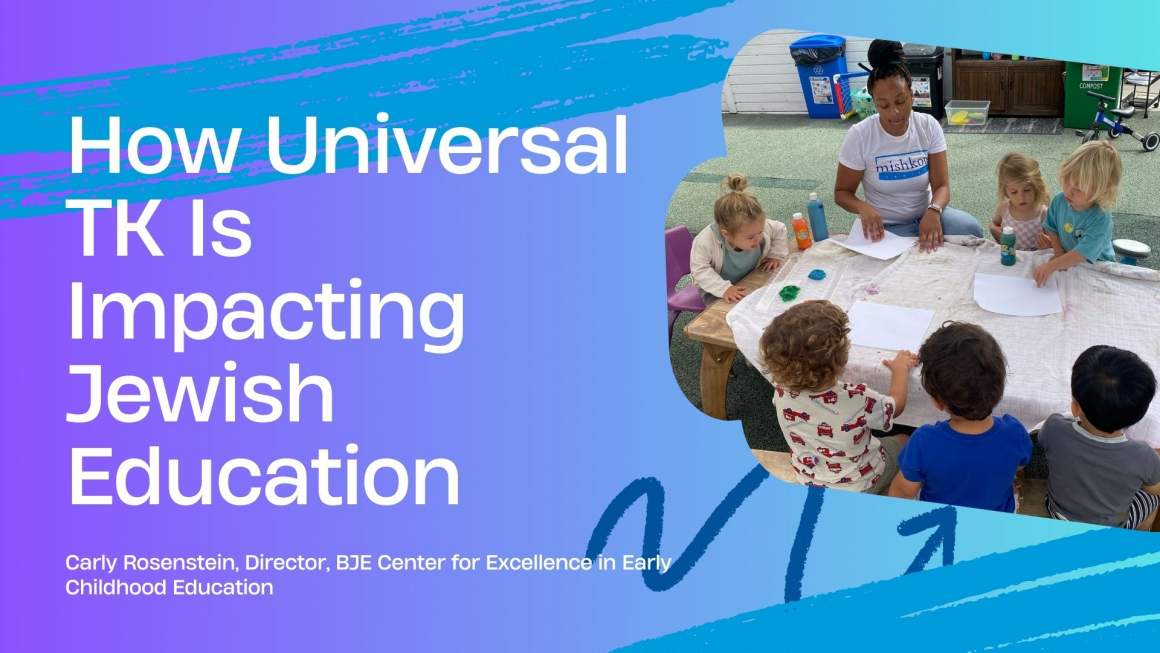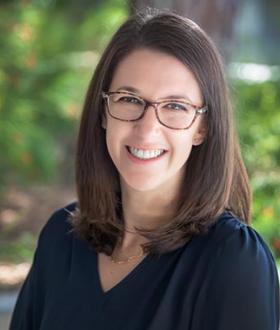
How Universal TK is Impacting Jewish Education
As schools understand and prepare for the challenges this is presenting to school enrollment and synagogue affiliation. A little background on this current issue:
Transitional Kindergarten (TK) in California came about after the Legislature approved the Kindergarten Readiness Act in 2010. The cutoff date for enrolling in kindergarten changed from children turning 5 by December 2nd of that school year to children turning 5 by September 1st of that school year. What we are seeing today is an expansion of TK into Universal TK (UTK) which allows all children who are 4 years old by September 2nd to be eligible for enrollment in a free public program. The expansion of TK is a great advancement for families that would be otherwise unable to attend early education programs due to financial constraints. Research has shown time and again the value of early education for positive long-term outcomes and educational achievements.
Many of the families who had been enrolling in Jewish Early Childhood Centers (ECCs) while their children were 2-5 years old, are now opting to leave a year early to attend free public TK programs when their children are 4 years old instead. There are many reasons families are making this choice, including free tuition, ease if older siblings are already attending public elementary schools, and early access to enrollment spots in highly coveted public schools.
While highly beneficial for so many children, the expansion of TK in L.A. public schools creates new challenges and opportunities for Jewish Early Childhood Centers and congregations outside of the Orthodox community. The loss of 4- and-5-year-olds is creating under-enrollment in some of our Jewish ECCs. Some schools have begun to include even younger children, such as at 18 months or even infants, to boost their enrollment. Some schools are opening special “TK” classrooms within their ECCs to entice families to stay for that extra year. There are many benefits to families who choose to stay in a Jewish ECC for the 4- and 5-year-old year and then head straight to kindergarten, including continuity of care for their children, potentially smaller class sizes and student-teacher ratios, a play-based education, less potty-training requirements, extended exposure to Jewish culture and ritual, and community-building for the families as well as the children.
At the same time, the expansion of UTK has also raised questions for some of L.A.’s synagogues and religious schools. Traditionally, part-time religious school begins in kindergarten, as children naturally graduate from an ECC and move into the religious school. But, as children are leaving the ECCs earlier to attend TK, synagogues are beginning to think about how they are going to engage these students and families, so there isn’t a break in their Jewish education.
To help address this question, BJE brought together pairs of synagogue ECC Directors and Religious School Directors for an opportunity to think about UTK’s effect on the children in their community and to creatively brainstorm options for the upcoming school year to keep these children and families engaged in synagogue life.
The program, held on January 30, 2023, examined the impact of this change, and addressed strategies to keep these families engaged in synagogue life and maintain religious school enrollment. This was a collaboration between BJE’s Early Childhood Directors Network and Religious School Educators Network; pairs of ECC and Religious School Directors from nine BJE-affiliated schools participated. Each of the schools has either already piloted a TK religious school class or is working to develop a program for TK students. The topics of greatest interest included developmentally appropriate curricula, appropriate teachers, and frequency and duration of planned classes for this age group.
Based on interest from participants, BJE will continue to bring this group together for additional conversations. As they continue their respective paths to addressing this educational shift, school directors will benefit from guidance on best practices by BJE professional staff and shared experiences of colleagues at other schools.
To learn more about the potential impact of Universal TK on Jewish Early Childhood Programs and Part-time Religious Schools, contact Carly Rosenstein, Director of BJE’s Center for Excellence in Early Childhood Education or David Lewis, Director of BJE’s Center for Excellence in Part-Time Jewish Education.

